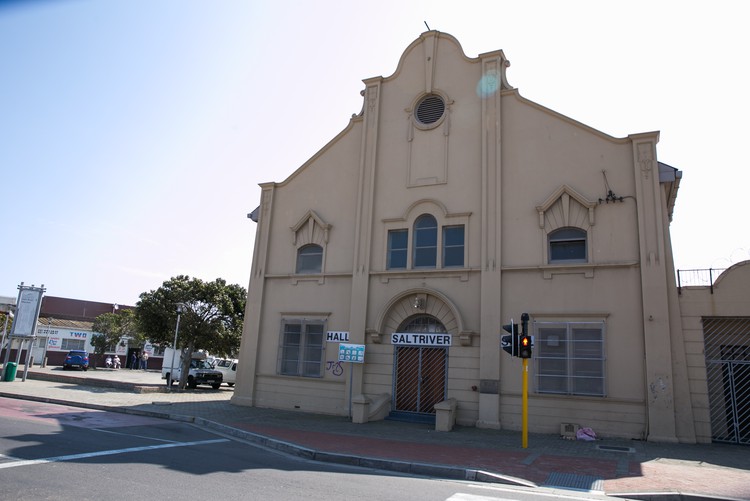City of Cape Town is not tackling housing crisis with urgency, say activists
Building social housing is complicated, says Malusi Booi
Social housing is to be built on the Salt River Market site. Archive photo: Ashraf Hendricks
- Only one of 11 social housing projects announced five years ago in Cape Town has been completed.
- Activist organisation Ndifuna Ukwazi says the City of Cape Town is not addressing the housing crisis with enough urgency.
- But Mayco Member for Human Settlements Malusi Booi says social housing is complex and takes time to build.
The City of Cape Town is not addressing the housing crisis with enough urgency, says activist organisation Ndifuna Ukwazi, with only one out of 11 planned affordable housing projects announced five years ago complete.
Ndifuna Ukwazi researcher Robyn Park-Ross says by the City’s own admission in its latest Municipal Spatial Development Framework, it will take more than 70 years to eradicate Cape Town’s current housing backlog.
Of 11 affordable housing projects announced in 2017 in Woodstock, Salt River, and the city centre, only one - the Pickwick Transitional Housing project - has been completed and is occupied.
The other sites are located in Pine Road, Dillon Lane, Salt River Market, James Street, New Market Street, Fruit and Veg, Upper Canterbury Street, and two sites at the Cissie Gool House (the former Woodstock Hospital and the hospital park).
Park-Ross said that there is a growing and urgent need for affordable homes to be built in well-located areas in the city. Park-Ross quoted from the City’s Integrated Human Settlements Sector Plan that an estimated 53% of new dwellings each year between 2020 and 2040 will be informal settlements. “This is a direct reflection of the growing need for affordable homes,” she said.
She said the need for houses had been drastically increased by the Covid pandemic. “Many people have lost work and incomes, pushing many into an impossible choice between living on the street or occupying land.”
Park-Ross also raised concerns about an increase in evictions now that the National State of Disaster has ended.
Ndifuna Ukwazi and Reclaim the City protested outside the Cape Town convention centre during the City’s Affordable Housing Indaba in early April, demanding that the moratorium on evictions be extended until the City could find a solution to homelessness.
Building social housing is complicated and it can take a long time, said Malusi Booi, the City’s Mayco Member for Human Settlements. “Social housing is an immensely complex housing model and done in a heavy statutory environment. Unfortunately, this takes time,” he said.
Legislative processes including land rezoning, public asset transfer, feasibility studies, partnership agreements, and lengthy public participation processes were necessary.
Booi said that social housing developments at Cissie Gool House (the former Woodstock hospital) and Helen Bowden Nurses’ Home had been stalled for nearly four years now due to two “hi-jackings” by Ndifuna Ukwazi soon after it was announced that the sites would be used for affordable housing.
Booi said that between 1996 and 2016, Cape Town’s population had increased by 56% to more than 4.3 million. Over the same period, the number of households had increased to about 1.36 million.
To meet the current housing demand and also accommodate projected growth, about 500,000 houses needed to be created between now and 2028, he said. The City currently has 6,500 social housing units planned across 50 land parcels, and the budget for housing opportunities is about R2 billion a year.
The City said the Pine Road and Dillion lane projects had been awarded to a social housing institution for development. The Salt River Market project had received rezoning approval and the City Council had approved the release of the land. The site in Upper Canterbury Street needed the de-proclamation of the road, and at the projects in James Street, Pickwick Road, Newmarket Street and Fruit and Veg City “development packaging” — preparing the project to meet all relevant national, provincial and municipal requirements — was underway.
Next: Judge cautions couples against sharing lawyers during divorce
Previous: Vendor’s relief as permit payments suspended for another six months
Letters
Dear Editor
There is enough land. Medium- and high-density accommodation must be developed close to well-located suburbs. Simultaneously the authorities need to conduct a proper land audit and unlock obstacles in order to develop. We also need land for urban agriculture. Cissie Gool House must be sorted out and the process used as a standard in social housing provision.
© 2022 GroundUp. This article is licensed under a Creative Commons Attribution-NoDerivatives 4.0 International License.
You may republish this article, so long as you credit the authors and GroundUp, and do not change the text. Please include a link back to the original article.
We put an invisible pixel in the article so that we can count traffic to republishers. All analytics tools are solely on our servers. We do not give our logs to any third party. Logs are deleted after two weeks. We do not use any IP address identifying information except to count regional traffic. We are solely interested in counting hits, not tracking users. If you republish, please do not delete the invisible pixel.



